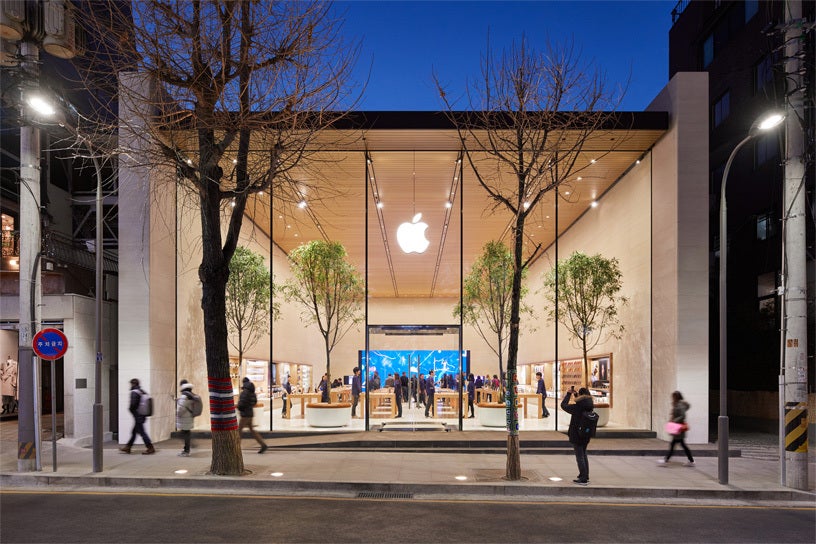Apple Stores in four states will reopen next week

Back on March 14th, Apple closed all of its Apple Stores outside China until March 27th. Very shortly thereafter, Apple said that the retail locations would remain shuttered until further notice. While Apple promised to keep paying the Geniuses and others working at the stores, some were sent a 27-inch Mac so that they could answer technical support questions from home.
Apple will open its retail stores in four states next week
Apple has been ready to open its U.S. stores at a moment's notice. In late March, a leaked memo from the company's retail chief Deirdre O'Brien indicated that some locations in the states could open during the first half of April. That turned out to be wishful thinking. More recently, O'Brien said in April that Apple would open the stores in May and the tech giant announced today that it is planning on opening some of its stateside stores next week with new social distancing protocols. In a statement, Apple said, "We're excited to begin reopening stores in the US next week, starting with some stores in Idaho, South Carolina, Alabama, and Alaska. Our team is constantly monitoring local health data and government guidance, and as soon as we can safely open our stores, we will...Our new social distance protocol allows for a limited number of visitors in the store at one time so there may be a delay for walk-in customers. We recommend, where possible, customers buy online for contactless delivery or in-store pick up." There are six stores in the four states opening next week and it isn't known whether all six will open their doors. Remaining stores will stay closed with employees continuing to work from home."

Apple is opening stores next week in Idaho, South Carolina, Alabama and Alaska
The situation in China has been completely different. On March 13th, Apple reopened all 42 Apple Stores located in the country; the stores started to shut down due to the coronavirus in January and by February all 42 were closed. Apple's supply chain had a similar schedule because the COVID-19 outbreak started in China and the number of cases there were declining just as the number of infected Americans started to rise.
The reopened Apple Stores will have a social distance protocol that limits the number of people that can be inside a single location at one time. In addition, Apple still recommends that consumers in the U.S. order devices online and receive them through "contactless delivery." Besides the online Apple Store, devices can be purchased using the Apple Store app (available from the App Store).
Apple COO Jeff Williams said the other day that the company would be reopening its retail stores in the coming weeks. He also noted that even with its stores shutdown, Apple was able to release the second-generation iPhone SE, the refreshed iPad Pro (with an 11-inch or 12.9-inch display), and a new MacBook Pro. Apple also has had to move its annual WWDC Developers Conference online. The event will now stream over the Apple Developer web site on June 22nd and will be free to developers who usually pay $1,500 for tickets to the conference. Apple also suggests that those interested in WWDC download the Apple Developer app to see when the keynote and other sessions will be streamed.
The company released its fiscal second-quarter earnings last week and had to skip making any estimates for the current quarter. That is because the coronavirus has made it impossible for Apple to make any forecasts with clarity. It will be a financial boon to Apple to have its retail locations reopen. While the stores were closed in March, U.S. iPhone sales declined by 56% during the month according to KeyBanc analyst John Vinh. The analyst said that he has seen "limited indications online sales have been able to make up for Apple Store closures."
While reopening the stores could help give Apple sales a boost, the company still has to worry about how consumers will respond with the U.S. unemployment rate at 14.7%; the American economy faces its toughest test since the Great Depression and 20 million Americans are out of work. For these people, buying an iPhone is the last thing on their minds.










Things that are NOT allowed: